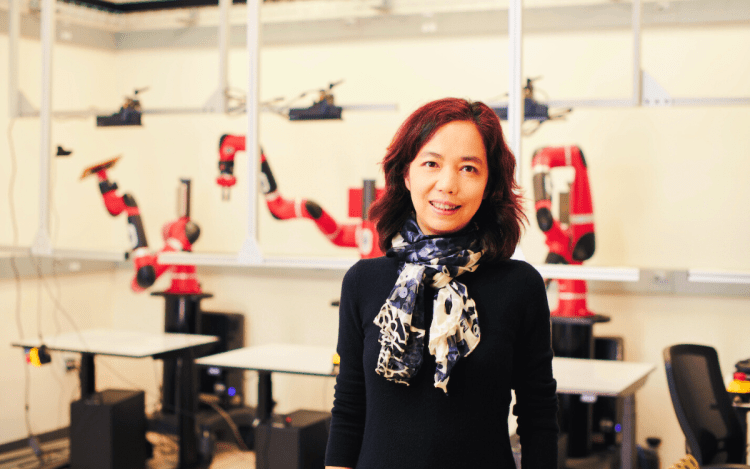I thought about Fei-Fei Li this weekend. Fei-Fei Li, the renowned computer science researcher, is known for her significant contributions to the field of AI. She created ImageNet, which revolutionized computer vision and paved the way for advancements in deep learning. Not only is she a professor of computer science at Stanford University but she also co-directs the Stanford University Human-Centered AI Institute. With a distinguished career at Google as the former chief scientist of AI and ML, Fei-Fei Li is an influential figure in the AI community.
Recently, she released a book titled “The Worlds I See,” and top publications such as the Economist, NPR, Fortune, MIT Technology Review, and Wired have interviewed her about her work. However, it is concerning to note that she was mysteriously missing from a list published by the New York Times called “Who’s Who Behind the Dawn of the Modern Artificial Intelligence Movement.”
This list, which featured twelve individuals, did not include any women. Instead, it included prominent figures like Sam Altman, CEO of OpenAI; Dario Amodei, co-founder of Anthropic; Bill Gates, co-founder of Microsoft; Demis Hassabis, co-founder of DeepMind; Geoffrey Hinton, AI researcher; Reid Hoffman, venture capitalist; Elon Musk, leader at Tesla and X; Satya Nadella, CEO of Microsoft; Larry Page, co-founder of Google; Peter Thiel, venture capitalist; Eliezer Yudkowsky, “internet philosopher”; and Mark Zuckerberg, CEO of Meta.
The lack of diversity in this list was met with frustration and disappointment from many, including Fei-Fei Li and other women who have contributed significantly to the AI field. It is disheartening to see such an oversight in a list that claims to represent the pioneers of modern artificial intelligence.
When reading the list, one can only imagine the collective eye rolls and sighs of exasperation that occurred around the world. But for women like Fei-Fei Li, it goes beyond a simple eye roll. It is a reminder of the ongoing struggle for recognition and representation in the AI community.
In a post shared by Fei-Fei Li, journalist Kara Swisher discussed the need to include more women in the AI field, highlighting the importance of diverse perspectives and experiences. The exclusion of Fei-Fei Li from the list is just one example of the larger issue of underrepresentation of women in AI.
“Leaving off Li from what is, ultimately, a rather silly list that offers zero historical context is really just a glaring symptom of a larger ‘where’s the women’ problem that every woman in AI (and most people, probably) is weary of addressing.”
As a female journalist covering AI, I share the sentiment expressed by Fei-Fei Li and many others. The constant need to address the lack of diversity in the field can be exhausting. It would be far more productive to focus on pressing issues such as governance problems within organizations like OpenAI rather than continuously highlighting the absence of women in leadership positions.
Furthermore, it is disconcerting to participate in conference panels that lack gender diversity. It is essential to create spaces that showcase the diverse voices and expertise within the AI community. It is time for everyone to acknowledge the need for greater inclusivity and actively work towards a more balanced representation of gender in AI.
Including Fei-Fei Li and other women AI pioneers in a comprehensive list should not be a daunting task. Recognizing and honoring their contributions will not only provide historical context but also inspire future generations of women in the field.
It is time for the AI community to step up and do better. Addressing the gender biases and disparities in the field is an achievable goal, and it begins with acknowledging the invaluable contributions of women like Fei-Fei Li.










